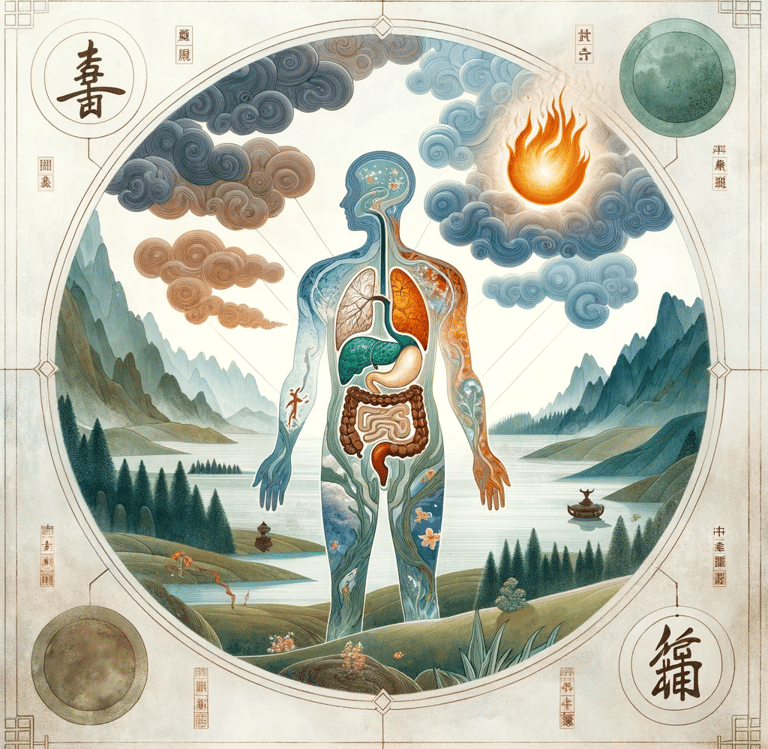diabetes
To approach diabetes from a holistic perspective


Holistic remedies to cure diabetes
To approach diabetes from a holistic perspective, it is essential to understand that holistic treatments can complement, but not replace, conventional treatments prescribed by a doctor. Here are some holistic approaches that can help manage diabetes:
1. Balanced nutrition: A proper diet is essential for managing diabetes. Eating vegetables, fruits, low-fat proteins, and whole grains keeps a blood sugar level stable.
2. Regular physical activity: Regular exercise can increase insulin and help maintain healthy blood sugar levels.
3. Stress Reduction: Techniques like yoga, meditation, or tai chi can help reduce stress, which is important because stress can negatively affect blood sugar levels.
4. Medicinal Herbs and Supplements: Certain herbs and supplements, such as fenugreek, cinnamon, ginseng, and others, can benefit glycemic control, but it is essential to contact a doctor before using them.
5. Acupuncture: Acupuncture can help relieve some diabetes symptoms and improve quality of life.
6. Weight Control: Maintaining a healthy weight is essential for managing diabetes.
7. Quality Sleep: Adequate sleep is essential for hormone regulation and can help control blood sugar levels.
8. Avoiding Smoking and Excessive Alcohol Consumption: These habits can negatively affect diabetes control.
It is vital to consult a doctor or specialist before starting any holistic treatment, especially if you are already under treatment for diabetes. Holistic therapies can interact with conventional medications and should be approached with caution.
What is diabetes from an acupuncture perspective?
From the perspective of acupuncture, a part of traditional Chinese medicine, diabetes is viewed differently from its understanding in Western medicine. In traditional Chinese medicine (TCM), diabetes is often associated with an imbalance in the body's energies and disruption of the normal functioning of the internal organs, especially the spleen, lungs and kidneys.
According to TCM, several key concepts are relevant to diabetes:
1. Qi (Vital Energy): Diabetes is believed to occur when there is a deficiency or imbalance of Qi in the body, affecting the normal functioning of the organs.
2. Yin and Yang: These complementary forces must be balanced for optimal health. Diabetes is often seen as an imbalance of Yin and Yang, specifically a deficiency of Yin that leads to symptoms such as excessive thirst and frequent urination.
3. Disharmony of the Internal Organs: Imbalances in the functioning of the spleen, lungs and kidneys are often associated with diabetes in TCM.
Acupuncture attempts to correct these imbalances by stimulating specific points in the body, which is believed to help improve the flow of Qi and restore health and balance. Acupuncture treatment for diabetes focuses on regulating blood sugar levels, improving internal organ function, and relieving symptoms specific to each patient.
It is important to note that while acupuncture may provide benefits for managing symptoms and improving the quality of life for people with diabetes, it is not a replacement for conventional diabetes treatments and should be used as a complementary therapy in consultation with health care providers.
From the point of view of TCM, which fact is the imbalance in the spleen due?
Spleen
In traditional Chinese medicine, the spleen plays a crucial role in digestion and transforming food into energy and blood. Spleen imbalances can be caused by several factors, according to TCM principles:
1. Improper Diet: Excessive consumption of heavy, oily, sweet, or cold foods can affect the function of the spleen. Irregular meals or eating in a hurry can also disrupt the spleen.
2. Emotional Stress: Emotions such as worry, overthinking or stress can affect the functioning of the spleen. In TCM, these emotions are believed to stagnate Qi energy and affect the transformation and transport process of the spleen.
3. Excessive or Insufficient Physical Activity: Both lack of physical exercise and over-exercise can damage the spleen. Moderate physical activity is recommended to maintain healthy Spleen Qi.
4. External Factors: Humidity or cold can also affect the spleen. Dampness, in particular, is thought to adversely affect the spleen, leading to symptoms such as heaviness and bloating.
5. Physical or Mental Exhaustion: Prolonged work, excessive mental effort, or chronic fatigue can weaken the spleen's energy.
In TCM, therapy for spleen imbalances includes a
she uses customized diets, herbs, acupuncture, and self-care practices to restore balance and health to the spleen. It is important to note that these approaches are complementary and do not replace conventional medical treatments. Consulting a qualified TCM practitioner for proper evaluation and treatment is always recommended.
Lungs
In Traditional Chinese Medicine (TCM):
Lungs are considered to be closely related to Qi, the vital energy of the body, and are responsible for the processes of breathing and distributing Qi throughout the body. Several factors can cause lung imbalances:
External Factors: In TCM, the lungs are susceptible to external factors such as cold, wind, dryness and pollution. These elements can invade the lungs and cause respiratory imbalances and problems.
Emotions: Sadness, melancholy, and pain are emotions that, according to TCM, are associated with the lungs. These emotions, if intense or prolonged, can affect the functioning of the lungs and Qi.
Improper Diet: Excessive consumption of cold, raw or hard-to-digest foods can affect the lungs, as they are linked to the digestive function of the spleen in TCM.
Sedentary Lifestyle: Lack of physical activity affects the ability of the lungs to distribute Qi efficiently throughout the body.
Constitutional Weakness: Some people may be born with a weaker lung constitution, which means they are more susceptible to respiratory problems and Qi imbalances.
To address lung imbalances, TCM may recommend breathing exercises, Qigong, acupuncture, herbs, and dietary adjustments. These approaches are meant to help strengthen and balance the lungs' Qi and protect them from harmful external factors.
It is important to note that these practices are complementary and do not replace conventional medical care for respiratory problems or other conditions. In case of health problems, it is better to consult a doctor or a qualified specialist.
Kidneys
In Traditional Chinese Medicine (TCM), kidneys are considered extremely important, having multiple and fundamental roles. They regulate the body's water balance and are the essential source of vital energy (Qi) and essence (Jing). Several factors can cause kidney imbalances:
Depletion of Vital Energy (Jing): Jing is a concentrated form of vital energy stored in the kidneys. Jing depletion can be caused by ageing, chronic stress, prolonged illness, sexual overwork, or other conditions of physical and mental exhaustion.
External Factors: Prolonged exposure to cold or humidity can affect the kidneys. In TCM, it is believed that cold and dampness can "invade" the kidneys and disrupt their functions.
Emotional Stress: Prolonged fear and anxiety are emotions associated with the kidneys in TCM and can weaken kidney function.
Improper Diet: Excessive consumption of salty, cold or raw foods can damage the kidneys. Also, an unbalanced diet that does not provide essential nutrients can weaken the kidneys.
Hereditary Factors: In TCM, it is believed that a person's hereditary constitution can also influence the condition of the kidneys.
To address kidney imbalances, TCM may include recommendations such as dietary adjustments, use of specific herbs, acupuncture, practices such as Qigong or Tai Chi, and lifestyle changes. These practices are intended to strengthen the kidneys, support Jing and Qi, and protect the body from external harmful factors.
It is essential to understand that these approaches are complementary and do not replace conventional medical care for kidney problems or other health conditions. It is always recommended to consult a doctor or a qualified TCM specialist for proper evaluation and treatment.
